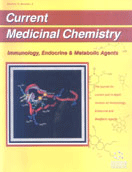Abstract
Phytoestrogens are a large family of plant derived molecules possessing various degrees oestrogen like activity. Food or food supplements containing phytoestrogen are often been advocated as an alternative to hormonal replacement therapy (HRT)in women with contra-indications to the use of conventional oestrogen replacement, or simply wanting a more "natural" alternatives. There have been several studies performed with phytoestrogen in various aspects of the postmenopausal women health. Results have been sometime conflicting and difficult to interpret. The lack of knowledge of what precisely is the active ingredient, its minimally effective doses, the lack of standardization of the preparations used as well as the large individual variability of metabolism of precursors introduced with the diet may all have played a role in confusing the issue about effectiveness of these compounds. Phytoestrogen fall in the gray area between food and drugs hence in spite of the vast public interest, there are no interests in company producing these supplements in investing in research from which they will not exclusively benefit from. It is often difficult for physician to know how to advise patients on this matter. In this paper I critically review the clinical data available to date in an attempt to answer some of the most commonly asked questions about dose and type of phytoestrogens supplementation most likely to be effective in different aspect of the climacteric woman health.
Keywords: fertility, biomarkers, hormonal replacement therapy (hrt), estrogen receptor (er), isoflavone glycosides, glycosides
 1
1








